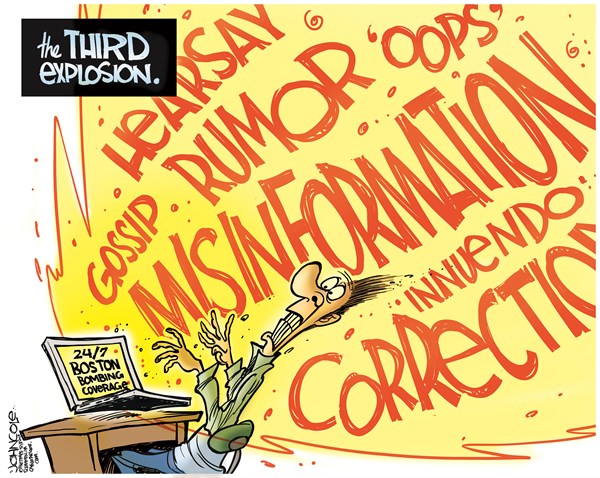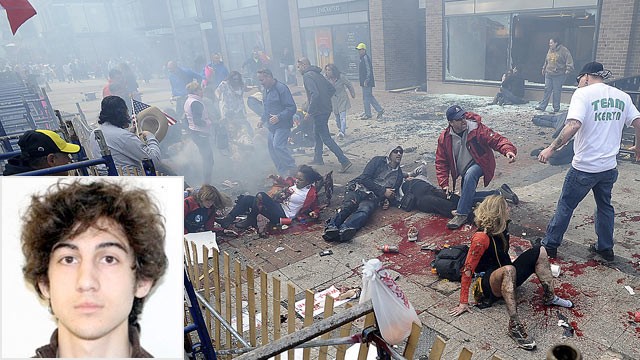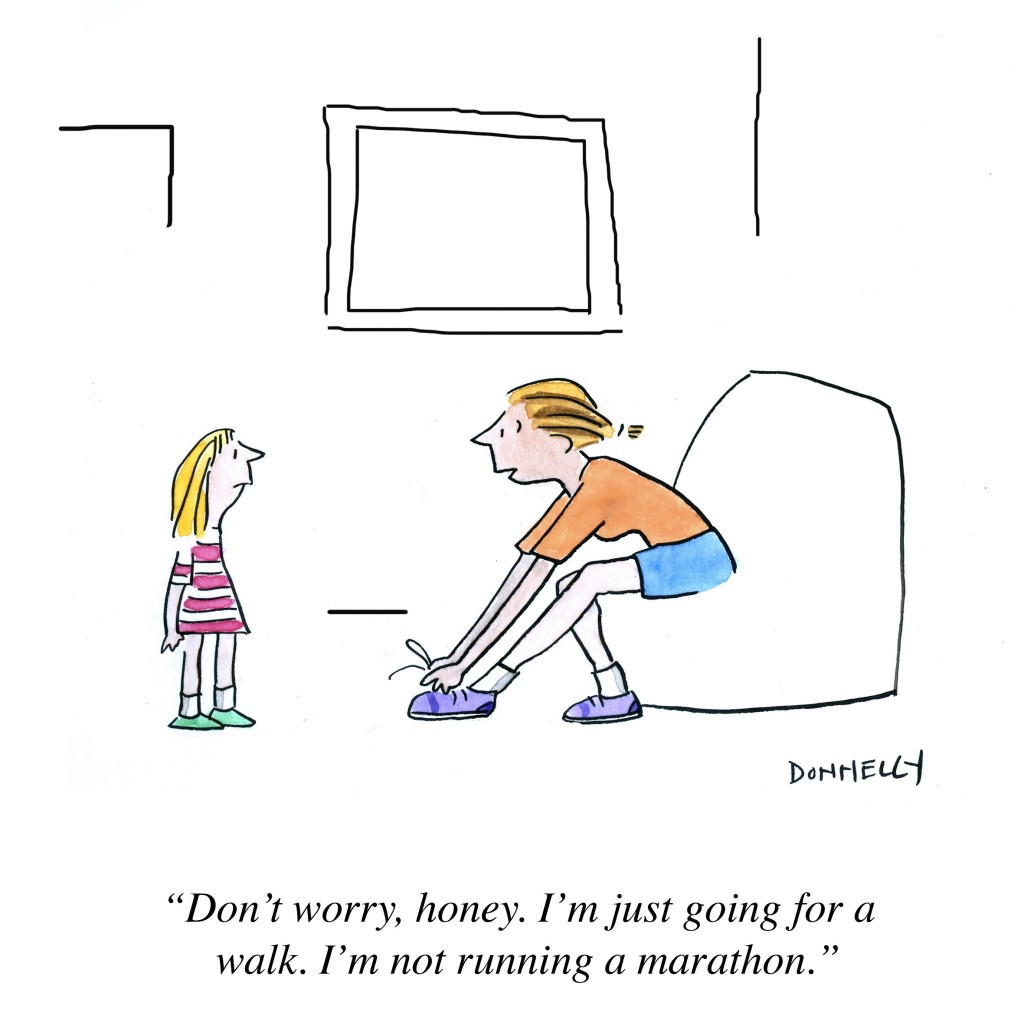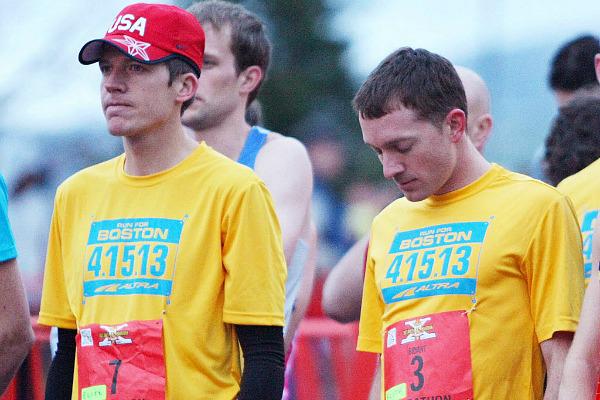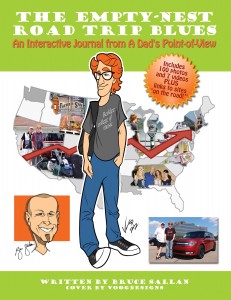Tips from Dr. Jennifer Weberman, Commentary by Bruce
The Boston Explosion aka The Boston Bombings have had a large impact on all of us. Such a senseless act of terror often raises difficult questions for parents and children. How can such evil exist? Where does it come from? Are we safe? What’s next? The list of questions is endless and for many of them, there is no simple answer, anymore than there is a simple answer to questions of faith. However, as parents, we must be able to comfort our children in these times of unfathomable suffering and unthinkable acts of evil.
I sat down that morning and wrote a Social Media Social Good column, Boston Explosion: Empathy and Grief. Later that week, we discussed The Boston Explosion on my radio show with Cherylyn LeBon – from a political point-of-view, with Pastor Drew Sams – from a spiritual point-of-view, and from Dr. Jennifer Weberman – from a therapeutic point-of-view. Dr. Jennifer Weberman (The Parenting Playground) gave us six incredibly valuable tips for parents that transcend this specific event and apply to all such cataclysmic events that engulf our families. Here they are:
1. Before you explain what happened, first, ask what they know.
This helps you get a sense of where you’re starting from so you can tailor your answer to your child’s level of understanding. Also by asking what your child already knows, it quickly gives you a chance to correct any misinformation they may have.
2. When you do explain what happened to young children, match your answer to their age and developmental level.
With young kids, keep the answer simple and emphasize their safety. Sometimes adults can over intellectualize things on a level that children aren’t ready for. Simply state that “someone did something that hurt other people” or “there was an explosion and some people were hurt.” Just be sure to say, “you are safe and I love you.” If they ask for more details, go gently and gradually. Parents often tell me they want to be honest with their kids. Honesty doesn’t require that we tell them all the gruesome details. Remember: Share, Don’t Scare!
Keep in mind that kids will commonly over estimate the chances of something bad happening to them or someone they love after they hear about a tragedy (e.g. if the explosion was in a building, they may think buildings are unsafe). So emphasis on the rarity of these events and their own safety is key.
The older the child the more detail they will want and the more opinions they’ll have about the event. Open dialogue is important and allows them the freedom and space to share what’s on their mind, without filtering them or trying to ‘talk’ them out of their feelings.
3. With young kids, expect that they may regress a little bit.
They may be extra clingy or there may be bedtime anxieties that resurface. Just be consistent with routines (routines are indicators of safety and normalcy), but give extra hugs and reassurance (perhaps extra snuggle time before bed).
4. Turn the television off and don’t watch the news (regular programming has commercials for the upcoming news).
When the news replays the same scene over and over again, it can give a young child the impression that the event is happening over and over again, which magnifies the intensity of it in their mind. Just turn the TV off when you’re with your little ones or watch videos. Note from Bruce: Also, as we well know, the news is really no longer “the news,” but rather competitive efforts to sensationalize and the dissemination of hurried, often inaccurate information, along with speculation and opinion.
5. Don’t be alarmed if your child draws, writes or plays about what happened.
If you observe your child using pretend toys to play out the event, that’s ok. This is often the way children work through things like this. It takes something scary and makes it less real by putting it into their play, which gives them more control over it (because they control the play) and leads to a sense of mastery over the situation. You can always support them by joining the play (adding rescue figures to help the injured or by reflecting back the feelings of the figures i.e. “that little dog is very scared”). Remember, they are putting some of their own feelings into those characters. If you’re concerned with something you see, contact a child psychologist for a consultation.
6. Children take coping cues from the adults in their lives, so it’s important to be aware of how you’re acting and speaking about the tragedy.
If you are on the phone speaking about what a terribly unsafe world we are raising our children in, that’s the message they will take to heart. They will believe that “the world is unsafe and the adults can’t protect me.” Don’t let the global feeling of despair linger in your home. Celebrate life by being with your loved ones. And if you want to do something to empower yourself – you can donate money or your time to the cause – do it as a family. Put positive energy into the world, so it can heal.
There’s a great quote from Fred Rogers about “finding the helpers:”
“When I was a boy and I would see scary things in the news, my mother would say to me, “Look for the helpers. You will always find people who are helping.” To this day, especially in times of “disaster,” I remember my mother’s words and I am always comforted by realizing that there are still so many helpers – so many caring people in this world.”
How about skipping that $5 Starbucks latte and splurging $2.99 (for the Kindle on Amazon) or $2.79 for the PDF of my new e-book? Enjoy my own informercial for it! This e-book is really a virtual journey. It’s filled with 100 photos, 7 original videos, and links to many of the stops on the trip. Click on the book cover image below to find your purchase options:


